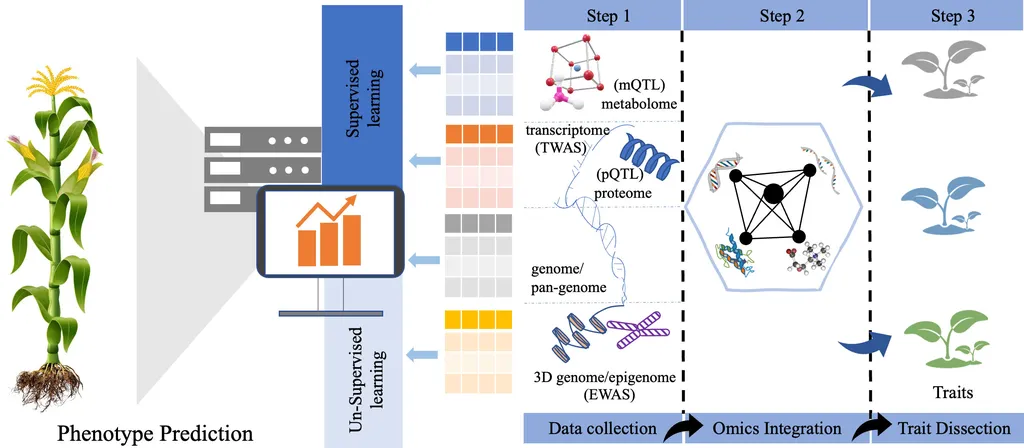In the ever-evolving landscape of agricultural innovation, a groundbreaking study published in *Plant Stress* is set to redefine how we approach crop improvement. The research, led by Muhammad Usama Younas from the Key Laboratory of Plant Functional Genomics at Yangzhou University, delves into the transformative potential of multi-omics technologies. These cutting-edge tools are unlocking the molecular secrets behind key agronomic traits, offering a promising pathway to enhance crop resilience and productivity.
The study highlights how integrating genomics, transcriptomics, metabolomics, and microbiome profiling can provide unprecedented insights into the molecular mechanisms governing crop performance. For instance, in rice, the combination of genomics and metabolomics has pinpointed critical loci and metabolic pathways that influence grain yield and nutritional quality. “By understanding these molecular interactions, we can develop crops that are not only more productive but also more nutritious,” Younas explains.
In maize, transcriptomic and genomic analyses have revealed networks that regulate flowering time and drought tolerance, crucial traits for adapting to changing climates. Similarly, in wheat, epigenomic and transcriptomic approaches have uncovered regulators of cold stress adaptation, which could be game-changers for farmers in colder regions.
The implications for the agriculture sector are immense. Multi-omics approaches offer a holistic view of plant biology, enabling breeders to make more informed decisions. “This integrative approach allows us to link molecular variation with complex agronomic traits, providing a solid foundation for crop improvement,” Younas notes.
Emerging layers such as lipidomics, immunomics, glycomics, and RNomics further expand the integrative potential of these technologies. Advanced trait-analysis frameworks like GWAS (Genome-Wide Association Studies), TWAS (Transcriptome-Wide Association Studies), and WGCNA (Weighted Gene Co-expression Network Analysis) offer practical pathways for breeding, resilience, and biofortification.
The study also emphasizes the role of advanced tools and interdisciplinary collaborations in addressing current scientific challenges. As the agricultural sector faces increasing pressures from climate change and population growth, these innovations could not come at a better time.
The research published in *Plant Stress*, led by Muhammad Usama Younas from the Key Laboratory of Plant Functional Genomics at Yangzhou University, underscores the potential of multi-omics technologies to revolutionize crop improvement. By decoding the molecular basis of key agronomic traits, this study paves the way for more resilient and productive crops, ultimately benefiting farmers and consumers alike. As we look to the future, the integration of these advanced tools and interdisciplinary collaborations will be crucial in addressing the pressing challenges facing the agriculture sector.

